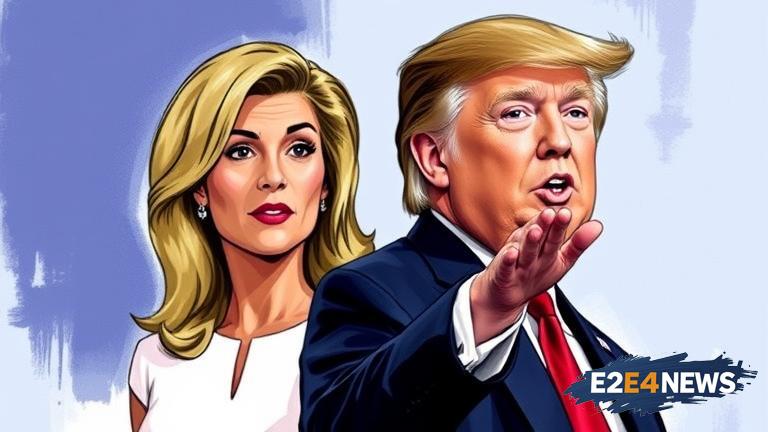Laura Ingraham, a prominent conservative commentator, and Donald Trump, the 45th President of the United States, have come under fire for their recent remarks on Chinese students. The controversy began when Ingraham made comments on her show, suggesting that Chinese students in the US are a threat to national security. Trump, known for his outspoken views, echoed similar sentiments, sparking widespread criticism. The comments have been denounced as xenophobic and racist, with many arguing that they perpetuate harmful stereotypes about Chinese people. The incident has highlighted the ongoing debate about immigration and national security in the US. Many have expressed concern that such rhetoric can fuel discrimination and prejudice against Chinese Americans and international students. The Chinese government has also responded, condemning the comments as ‘unacceptable’ and ‘discriminatory’. The incident has sparked a wider conversation about the role of rhetoric in shaping public opinion and policy. Critics argue that such comments can have serious consequences, including inciting violence and hatred towards minority groups. Others have pointed out that the comments are not only offensive but also misguided, as Chinese students contribute significantly to the US economy and academic community. The controversy has also raised questions about the responsibility of public figures to promote respectful and inclusive dialogue. As the debate continues, many are calling for greater awareness and understanding of the impact of words on different communities. The incident serves as a reminder of the importance of promoting diversity, equity, and inclusion in all aspects of society. Furthermore, it highlights the need for public figures to be mindful of the language they use and the potential consequences of their words. The controversy surrounding Ingraham and Trump’s comments has sparked a national conversation about the importance of respecting and valuing diversity. It has also underscored the need for greater cultural competence and sensitivity in public discourse. In addition, the incident has raised concerns about the potential consequences of such rhetoric on international relations and global cooperation. The US has long been a destination for international students, and such comments can damage the country’s reputation as a welcoming and inclusive society. Many universities and colleges have spoken out against the comments, emphasizing the value of diversity and the importance of creating a welcoming environment for all students. The incident has also sparked a discussion about the role of media in promoting respectful and inclusive dialogue. As the controversy continues to unfold, it remains to be seen how the situation will be resolved and what steps will be taken to address the concerns of those affected. Ultimately, the incident serves as a reminder of the importance of promoting respect, empathy, and understanding in all aspects of society.
